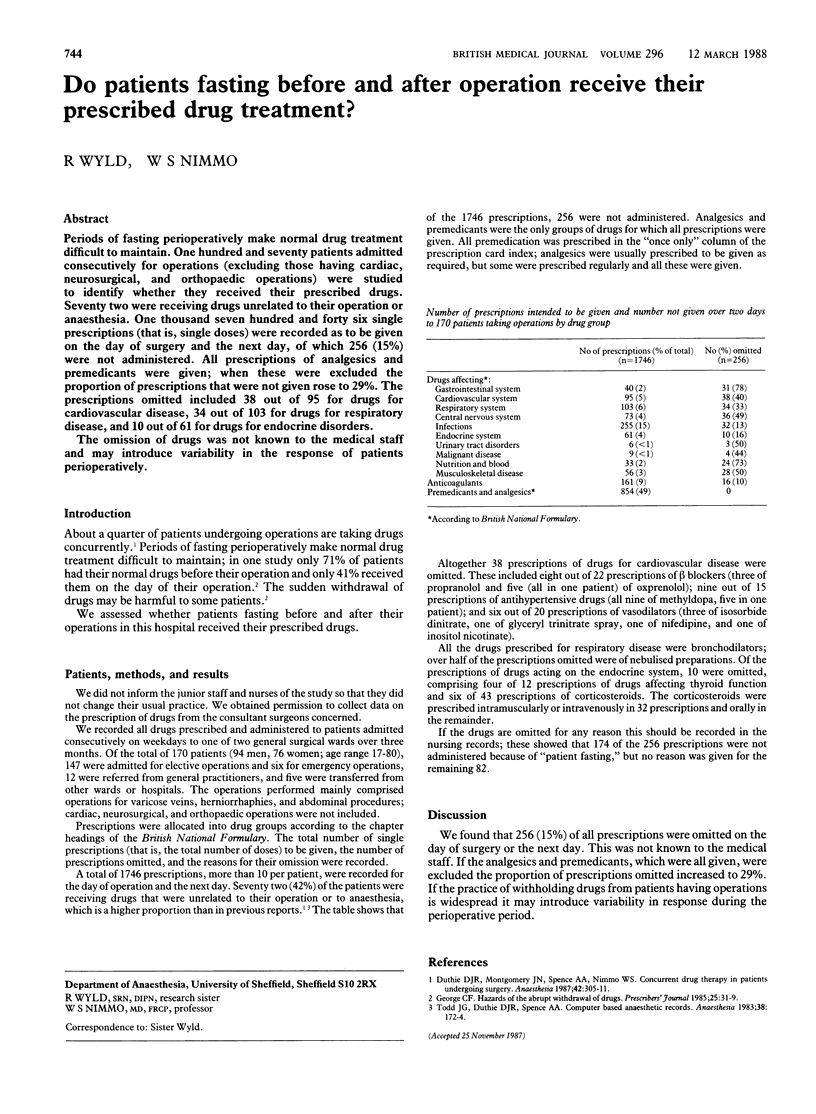Abstract
Periods of fasting perioperatively make normal drug treatment difficult to maintain. One hundred and seventy patients admitted consecutively for operations (excluding those having cardiac, neurosurgical, and orthopaedic operations) were studied to identify whether they received their prescribed drugs. Seventy two were receiving drugs unrelated to their operation or anaesthesia. One thousand seven hundred and forty six single prescriptions (that is, single doses) were recorded as to be given on the day of surgery and the next day, of which 256 (15%) were not administered. All prescriptions of analgesics and premedicants were given; when these were excluded the proportion of prescriptions that were not given rose to 29%. The prescriptions omitted included 38 out of 95 for drugs for cardiovascular disease, 34 out of 103 for drugs for respiratory disease, and 10 out of 61 for drugs for endocrine disorders.
The omission of drugs was not known to the medical staff and may introduce variability in the response of patients perioperatively.
Full text
PDFPage 744

Selected References
These references are in PubMed. This may not be the complete list of references from this article.
- Duthie D. J., Montgomery J. N., Spence A. A., Nimmo W. S. Concurrent drug therapy in patients undergoing surgery. Anaesthesia. 1987 Mar;42(3):305–306. doi: 10.1111/j.1365-2044.1987.tb03045.x. [DOI] [PubMed] [Google Scholar]
- Todd J. G., Duthie D., Spence A. A. Computer-based anaesthetic records. Anaesthesia. 1983 Feb;38(2):172–174. doi: 10.1111/j.1365-2044.1983.tb13960.x. [DOI] [PubMed] [Google Scholar]



